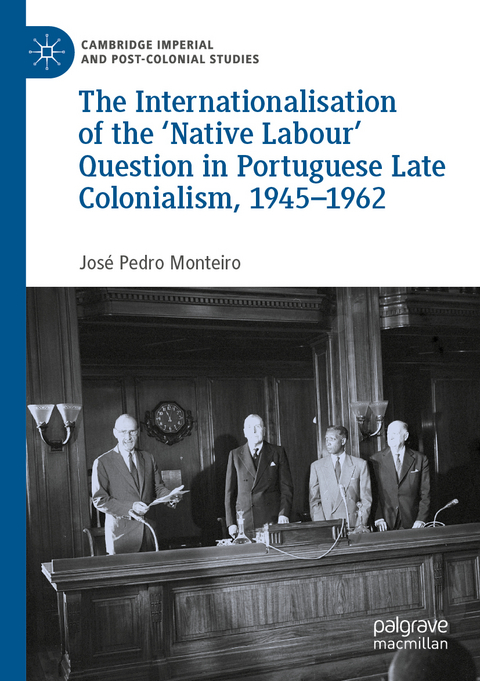
The Internationalisation of the ‘Native Labour' Question in Portuguese Late Colonialism, 1945–1962
Springer International Publishing (Verlag)
978-3-031-05142-5 (ISBN)
This volume addresses the ways the 'native labour' question in the Portuguese late colonial empire in Africa became a recurrent topic of international and transnational debate and regulation after the Second World War. As other European colonial empires were tentatively transforming their labour and social policies in the aftermath of the war, the Portuguese Empire in Africa resisted significant changes in this domain, preserving a strict dual labour regime. As a result, a growing number of individuals, networks and institutions abroad engaged with labour and social realities in Portuguese African colonies, giving origin to a series of instances of denunciation of labour-related abuses. Portuguese authorities responded to these initiatives by selectively engaging with international norms, languages and mechanisms. However, as global decolonisation gained momentum, international and transnational events and processes would significantly constrain Portuguese imperial and colonial decision-making procedures, with the aim of retaining the empire. Therefore, the 'native labour' question became in its own right a crucial political and diplomatic element of the broader struggles over the meaning of Portuguese imperial legitimacy. As this volume argues, these historical processes are critical to properly understanding the history of Portuguese late colonialism and its protracted trajectory of decolonisation.
lt;p>José Pedro Monteiro is a Research Fellow at the Communication and Society Research Centre - University of Minho, Portugal. His current research project focuses on the politics of citizenship in the Portuguese late colonial empire. He has been working, for the last few years, on the intersections between international and imperial histories and historiographies. With Miguel Bandeira Jerónimo, he co-edited Internationalism, Imperialism and the Formation of the Contemporary World (Palgrave, 2017). He is currently the coordinator of the research project "Humanity Internationalized: Cases, Dynamics, Comparisons (1945-1980)", funded by the Portuguese Foundation for Science and Technology.
Chapter 1: Introduction.- Chapter 2: The Reconfiguration of International Standards and Portuguese "Native Labour" Policies.- Chapter 3: The End of the "Happy Times": The Renewed Internationalisation of Debates on Labour Freedom.- Chapter 4: A Long and Troubled Process: The Ratification of the 1930 Forced Labour Convention.- Chapter 5 - Portuguese Colonialism and the Expansion of the Internationalisation of the "Native Labour" Question.- Chapter 6: Ghana's Complaint against the Portuguese Empire at the ILO (1961-1962).- Chapter 7: Conclusion.
| Erscheinungsdatum | 23.11.2023 |
|---|---|
| Reihe/Serie | Cambridge Imperial and Post-Colonial Studies |
| Zusatzinfo | IX, 230 p. 1 illus. |
| Verlagsort | Cham |
| Sprache | englisch |
| Maße | 148 x 210 mm |
| Gewicht | 318 g |
| Themenwelt | Geisteswissenschaften ► Geschichte ► Allgemeines / Lexika |
| Geschichte ► Teilgebiete der Geschichte ► Wirtschaftsgeschichte | |
| Schlagworte | Abolition • Angola • Anti-Imperialism • anti-slavery • Cold War • Colonial officials • Decolonisation • end of empire • forced labour • ILO • International Labour Organisation • Mozambique • postwar • Sao Tome • UN • World War II |
| ISBN-10 | 3-031-05142-4 / 3031051424 |
| ISBN-13 | 978-3-031-05142-5 / 9783031051425 |
| Zustand | Neuware |
| Informationen gemäß Produktsicherheitsverordnung (GPSR) | |
| Haben Sie eine Frage zum Produkt? |
aus dem Bereich


